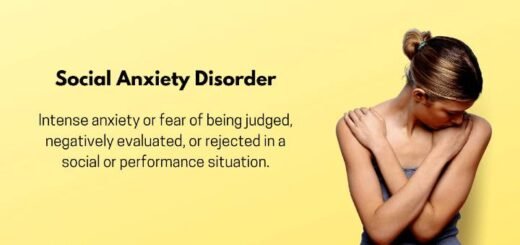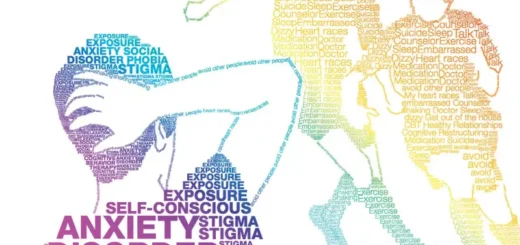Maori Insights into Social Phobia Symptoms and Understanding
In New Zealand, social phobia, characterized by intense fear and anxiety in social situations, significantly impacts the lives of many individuals. Understanding the symptoms of social phobia is crucial, especially within the context of Māori perspectives, which emphasize holistic well-being and community interconnectedness. By incorporating Māori cultural values and insights, mental health professionals can enhance their approaches to recognizing and addressing these symptoms, fostering a more inclusive environment for those affected.
Māori perspectives advocate for a comprehensive understanding of mental health, viewing symptoms not merely as individual issues but as part of a larger social and cultural framework. This approach encourages open dialogue and support systems within communities, helping to destigmatize social phobia. For further insights on this important topic, visit Social Phobia New Zealand.
Understanding Social Phobia: A Māori Perspective
In New Zealand, social phobia, also known as social anxiety disorder, can significantly impact individuals’ lives. Māori perspectives offer a unique understanding of mental health issues, including social phobia symptoms. Traditionally, Māori culture emphasizes community, relationships, and collective well-being, which can influence how individuals experience and interpret social anxiety. The interconnectedness of individuals within whānau (family) and hapū (sub-tribe) can play a crucial role in how social phobia is recognized and addressed among Māori. By considering these cultural frameworks, mental health professionals can better tailor their approaches to support Māori individuals facing social phobia. For resources and information on addressing these symptoms, visit Social Phobia New Zealand.
Symptoms of Social Phobia in Māori Communities
Social phobia manifests through various symptoms, including excessive fear of social situations, avoidance behaviors, and physical signs like sweating or trembling. In Māori communities, these symptoms may be interpreted through cultural lenses. For instance, the fear of disappointing one’s whānau can exacerbate social anxiety. Furthermore, the communal context may lead individuals to hide their symptoms to maintain a façade of strength. Understanding these culturally specific symptoms is essential for effective diagnosis and treatment. Mental health professionals should engage with Māori communities to recognize these unique expressions of social phobia, ensuring that cultural norms are respected and incorporated into treatment plans.
Traditional Māori Healing Practices
In addressing social phobia symptoms, traditional Māori healing practices offer valuable insights. Rongoā Māori, or Māori medicine, encompasses a holistic approach that considers physical, spiritual, and emotional well-being. Engaging in practices such as karakia (prayer) and whakawhanaungatanga (relationship building) can help individuals reconnect with their cultural identity and alleviate symptoms of social anxiety. By incorporating these practices into modern therapeutic approaches, mental health professionals can create a more culturally relevant and effective treatment plan. Community-based initiatives that promote Māori healing traditions can also empower individuals to seek help for their symptoms in a supportive environment.
The Importance of Whānau Support
Whānau support plays a fundamental role in addressing social phobia symptoms within Māori communities. The collective nature of family ties means that support systems are often deeply intertwined. Encouraging open conversations about mental health within whānau can help destigmatize social anxiety and provide affected individuals with a sense of belonging. Family members can also learn to recognize symptoms and offer their support, whether through practical assistance or emotional encouragement. Initiatives that foster whānau involvement in mental health discussions can be pivotal in creating a supportive community atmosphere, reducing the burden of social phobia.
Education and Awareness Initiatives
Raising awareness and educating both Māori and non-Māori about social phobia is crucial for effective recognition and intervention. Schools, workplaces, and community organizations can implement programs that address mental health issues, specifically targeting the symptoms of social phobia. Incorporating Māori perspectives into these initiatives ensures that cultural values are respected and that the information is relevant to Māori individuals. Workshops, seminars, and community events that facilitate discussions about social anxiety can help demystify the condition, making it easier for individuals to seek help. Collaborations with organizations like Social Phobia New Zealand can enhance these efforts.
Integrating Māori Perspectives into Mental Health Services
To effectively address social phobia symptoms, mental health services in New Zealand must integrate Māori perspectives. This means not only recognizing the cultural context of social anxiety but also employing Māori practitioners who can bridge the gap between traditional healing and contemporary therapy. Training for mental health professionals on Māori customs, values, and communication styles can lead to more effective treatment outcomes. Culturally responsive practices that prioritize the individual’s identity and community connections can foster trust and encourage individuals to engage with mental health services.
Future Directions: Research and Policy Recommendations
Ongoing research into the intersection of Māori culture and social phobia is vital for developing effective policies and interventions. Policymakers should prioritize funding for mental health initiatives that are culturally tailored for Māori communities. Additionally, research studies that explore the prevalence and manifestations of social phobia among Māori can provide critical insights needed for effective support. Collaborating with Māori researchers and community leaders will ensure that the findings are relevant and beneficial. By advocating for culturally informed policies, we can create a more inclusive mental health landscape that addresses the specific needs of Māori individuals experiencing social phobia symptoms.
FAQs
What are the common symptoms of social phobia?
Common symptoms of social phobia include intense fear of social situations, excessive self-consciousness, physical symptoms like sweating or trembling, and avoidance of social interactions due to fear of embarrassment or judgment.
How do Maori perspectives contribute to understanding social phobia symptoms?
Maori perspectives emphasize the importance of community, connection, and holistic well-being. By integrating these views, we can better understand how social phobia symptoms manifest within cultural contexts and how communal support can aid in addressing them.
Can Maori cultural practices help alleviate symptoms of social phobia?
Yes, Maori cultural practices such as whakawhanaungatanga (building relationships) and engaging in cultural rituals can provide a supportive environment that helps individuals manage and reduce the symptoms of social phobia.
What role does storytelling play in addressing social phobia symptoms from a Maori perspective?
Storytelling is a vital aspect of Maori culture that fosters connection and understanding. Sharing personal narratives can help individuals express their feelings about social phobia symptoms and find solidarity within their community.
How can community support impact individuals experiencing social phobia symptoms?
Community support can significantly impact individuals by providing a sense of belonging and acceptance. This support can help reduce feelings of isolation and fear associated with social phobia symptoms, encouraging individuals to engage more with others.
What strategies can be derived from Maori perspectives to cope with social phobia symptoms?
Strategies derived from Maori perspectives include practicing mindfulness, engaging in traditional rituals, seeking guidance from elders, and participating in community events to foster a sense of belonging and diminish the intensity of social phobia symptoms.
How can mental health professionals incorporate Maori perspectives in treating social phobia?
Mental health professionals can incorporate Maori perspectives by recognizing the cultural significance of community and spirituality, using culturally relevant therapies, and involving family and community in the treatment process to address social phobia symptoms more effectively.
References
- Social Phobia Support – New Zealand – A dedicated resource providing information and support for individuals experiencing social phobia, with insights into cultural perspectives, including Māori approaches to mental health.
- Māori Mental Health Policies – Ministry of Health NZ – This publication outlines the principles and policies guiding mental health services for Māori, emphasizing the importance of cultural perspectives in addressing mental health issues.
- Te Whare Pora – Māori Mental Health and Wellbeing – An organization focusing on the integration of Māori perspectives in mental health and wellbeing, including strategies for addressing anxiety and social phobia.
- Māori Health – Te Puni Kōkiri – This resource provides an overview of Māori health initiatives and the role of cultural practices in improving mental health outcomes, including the treatment of social phobia.
- Te Mahi – Māori Mental Health Service – A comprehensive service that integrates Māori cultural practices into mental health care, focusing on community support and addressing conditions like social phobia within a Māori context.




